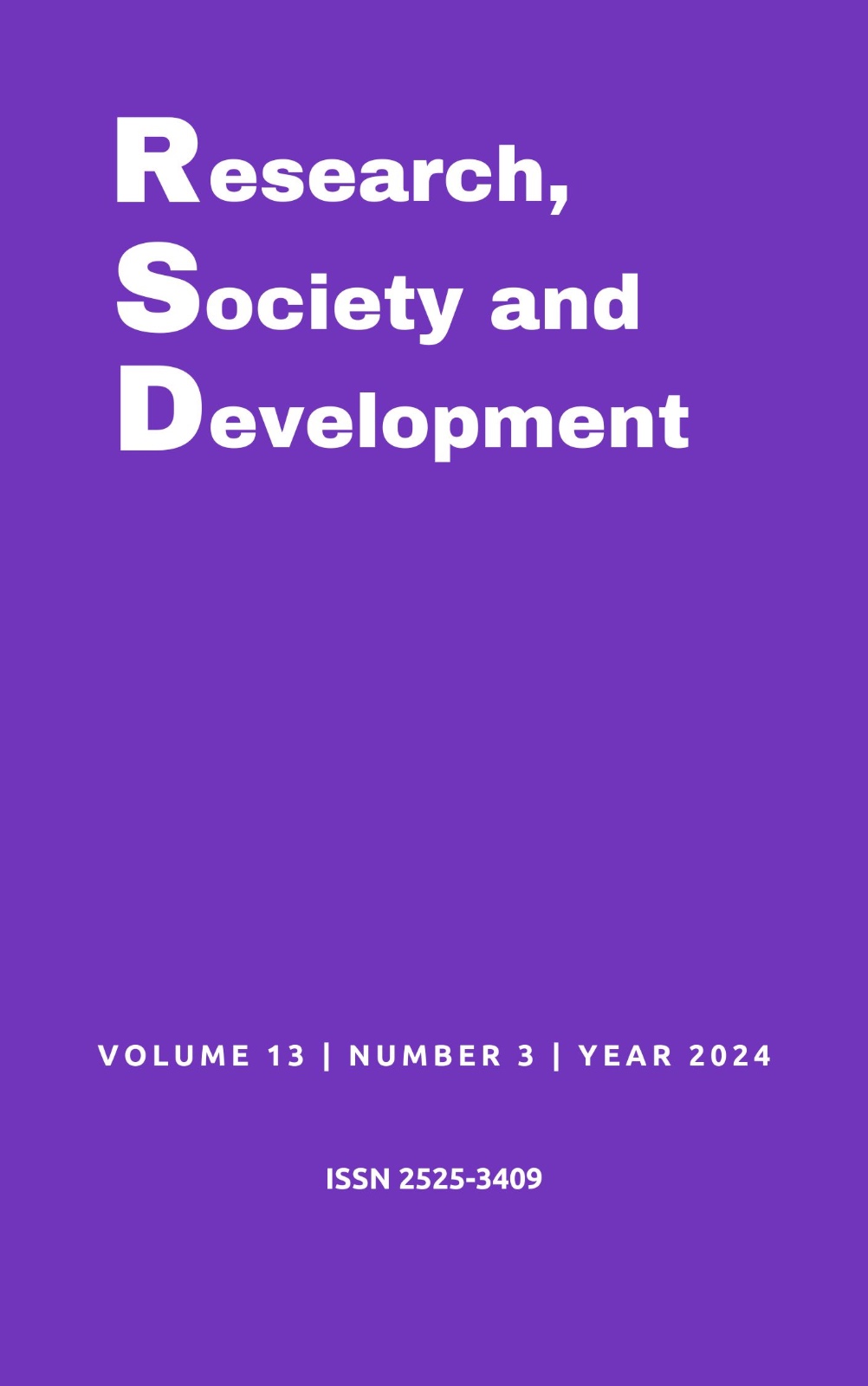Relationship between COVID-19 vaccination and sleep quality: A cross-sectional study
DOI:
https://doi.org/10.33448/rsd-v13i3.45417Keywords:
COVID-19, Sleep quality, Vaccination.Abstract
Aim: To evaluate the potential effects of COVID-19 vaccination on the perception of sleep quality among various categories of vaccinated individuals, as well as among unvaccinated individuals. Methods: A cross-sectional, quantitative, and descriptive approach was used, targeting participants of both genders who completed an online form on Google pertaining to sociodemographic information, sleep quality, vaccination status, and other factors related to quality of life. Inclusion criteria involved participants over 18 years of age who consented to the Informed Consent Form. The study was conducted with the approval of the Research Ethics Committee of UEPB, with the CAAE number: 57982422.1.0000.5187. Data were analyzed using descriptive statistics and correlation matrix. Results: The sample consisted of 96 adults, ranging from 19 to 66 years old, with most participants being female, accounting for 77.1% of the sample. Regarding the effects of vaccination on sleep, a high homogeneity in the data was observed, with no correlation found between vaccine doses and sleep quality. Additionally, concerning the feeling of tranquility and relaxation after vaccine administration, 13.5% reported feeling so after the first dose, 28.1% after the second dose, 22.9% after the third dose, and 43.8% claimed not to notice any difference. The research indicated that 60.4% of participants reported an improvement in quality-of-life post-vaccination. Final Considerations: These results underscore the importance of disseminating the benefits of vaccination that extend beyond immunization, positively influencing not only physical well-being but also psychological and social well-being, key components of quality of life.
References
Athasionou. (2022). Association of sleep duration and quality with immunological response after vaccination against severe acute respiratory syndrome coronavirus-2 infection. Journal of Sleep Research. https://pesquisa.bvsalud.org/portal/resource/pt/mdl-35670298.
Agência Brasil. IBGE: pelo menos uma doença crônica afetou 52% dos adultos em 2019. Disponível em: <https://agenciabrasil.ebc.com.br/>.
Barros, M. B. A., et al. (2019). Qualidade do sono, saúde e bem-estar em estudo de base populacional. Revista de Saúde Pública, 53.
Barros, M. B. A., et al. (2020). Relato de tristeza/depressão, nervosismo/ansiedade e problemas de sono na população adulta brasileira durante a pandemia de COVID-19. Epidemiologia e Serviços de Saúde, 29, e2020427.
Brasil. (2021). Lança Guia de Atividade Física para a População Brasileira, com apoio da Opas. Organização Pan-Americana da Saúde (Paho.org). Disponível em: < Ministério da Saúde do Brasil lança Guia de Atividade Física para a População Brasileira, com apoio da OPAS - OPAS/OMS | Organização Pan-Americana da Saúde (paho.org)>.
Brasil. (2021). Como se proteger? Disponível em: .
Brasil. (2022). Mais proteção: 30 milhões de pessoas tomaram a dose de reforço contra a COVID-19 no Brasil. Disponível em: .
Brasil. (2022). Imunização, uma descoberta da ciência que vem salvando vidas desde o século XVIII. Disponível em .
Brito-Marques, J. M. de A. Miranda, et al. (2021) Impacto da pandemia COVID-19 na qualidade do sono dos médicos no Brasil. Arquivos de Neuro-Psiquiatria, 79(2), 149-155.
Comitê Científico de Apoio ao Enfrentamento à Pandemia da COVID-19 - Governo do Estado do Rio Grande do Sul. Secretaria de Inovação, ciência e Tecnologia. (2022). Nota técnica sobre vacinas: Histórico e eficácia. Disponível em: .
Everitt, B. S. (2006). The Cambridge Dictionary of Statistics, (3rd ed.), Cambridge University Press, Cambridge.
Martins, P. J. F.; Mello, M. T. de; & Tufik, S. (2002). Exercício e sono. Revista Brasileira de Medicina do Esporte, 7, 28-36.
Menezes-Júnior. (2023). Sedentary behavior is associated with poor sleep quality during the COVID-19 pandemic, and physical activity mitigates its adverse effects. BMC Public Health. <https://bmcpublichealth.biomedcentral.com/articles/10.1186/s12889-023-16041-8>.
Mizuta, A. H., et al. (2018). Percepções acerca da importância das vacinas e da recusa vacinal numa escola de medicina. Revista Paulista de Pediatria, 37, 34-40.
Morin, C. M., et al. (2021). Insomnia, anxiety, and depression during the COVID-19 pandemic: An international collaborative study. Sleep Medicine, 87, 38-45.
Oliveira, L. M. F. T., et al. (2018). Exercício físico ou atividade física: qual apresenta maior associação com a percepção da qualidade do sono de adolescentes? Revista Paulista de Pediatria, 36, 322-328.
Partinen, M., et al. (2021). Sleep and daytime problems during the COVID-19 pandemic and effects of coronavirus infection, confinement, and financial suffering: a multinational survey using a harmonised questionnaire. BMJ Open, 11(12), e050672,
Pereira A. S.; Shitsuka, D. M.; Parreira, F. J. & Shitsuka, R. (2018). Metodologia da pesquisa científica. UFSM.
Reimão, R. (1996). Sono: estudo abrangente (2a ed.). Atheneu.
Santana. (2022). Associações entre duração de sono e índices de massa gorda, muscular e corporal em adolescentes de São Luís, Maranhão, Brasil. Cad. Saúde Pública. Disponível em: <https://bmcpublichealth.biomedcentral.com/articles/10.1186/s12889-023-16041-8>.
Toassi, R. F. C. & Petry, P. C. (2021). Metodologia científica aplicada à área da Saúde. (2a ed.), Editora da UFRGS.
Walter, O. M. F. C. (2013). Análise de ferramentas gratuitas para condução de survey online. Produto & Produção, 14/2, 44-58.
Downloads
Published
Issue
Section
License
Copyright (c) 2024 Alba Karine Andre; Ana Beatriz Silva Santos; Cleyton Gomes da Silva; Kelly Soares Farias

This work is licensed under a Creative Commons Attribution 4.0 International License.
Authors who publish with this journal agree to the following terms:
1) Authors retain copyright and grant the journal right of first publication with the work simultaneously licensed under a Creative Commons Attribution License that allows others to share the work with an acknowledgement of the work's authorship and initial publication in this journal.
2) Authors are able to enter into separate, additional contractual arrangements for the non-exclusive distribution of the journal's published version of the work (e.g., post it to an institutional repository or publish it in a book), with an acknowledgement of its initial publication in this journal.
3) Authors are permitted and encouraged to post their work online (e.g., in institutional repositories or on their website) prior to and during the submission process, as it can lead to productive exchanges, as well as earlier and greater citation of published work.


